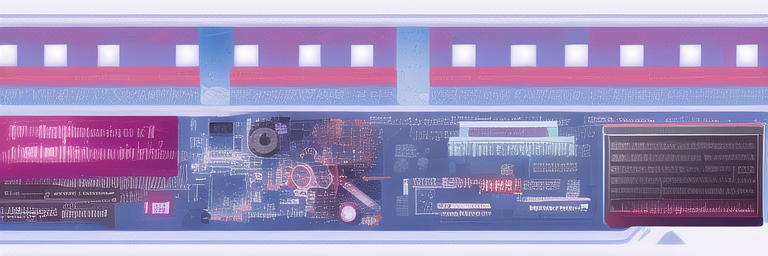What is The MEAN Stack?
The Mean stack is a web development stack that includes the MongoDB, Express.js, AngularJS, and Node.js frameworks. It is a full–stack JavaScript solution that helps you build fast, scalable, and maintainable applications. The Mean stack is a great choice for building dynamic web applications that require a fast and responsive user interface.
MongoDB is a powerful document-oriented database that is perfect for storing large amounts of data. Express.js is a lightweight web application framework that helps you easily create web applications. AngularJS is a front-end JavaScript framework that makes it easy to create interactive user interfaces. Node.js is a fast and scalable server-side JavaScript platform that helps you easily build scalable web applications.
The Mean stack is a great choice for building fast, scalable, and maintainable web applications.
A Good Choice for Web Development
There are many reasons why the MEAN stack is a good choice for web development.
- First, it uses JavaScript for both the front–end and back–end, which makes development more efficient and consistent.
- Second, it includes MongoDB, which is a powerful and popular NoSQL database.
- Third, it includes the Express.js web application framework, which is fast and lightweight.
- Finally, it includes the AngularJS JavaScript framework, which is a powerful and popular framework for building single–page web applications.
What Developers are saying…
The Mean stack is a popular choice for web developers because it provides a comprehensive set of tools for building dynamic web applications. There are many reasons why developers like the MEAN stack. One reason is that the it is full-stack JavaScript, which means that developers can use one language for both the front-end and back-end of their web applications. This can make development faster and easier, as developers only need to learn one language.
Another reason why developers like the Mean stack is that it uses open-source technologies. This means that developers can access a wealth of resources and support when needed, and they can also contribute to the development of these technologies.
Finally, it is known for being scalable and efficient. This means that developers can build large and complex web applications without worrying about performance issues.
Advantages and Challenges
Advantages
The Mean stack is a web development stack that includes the MongoDB, Express.js, AngularJS, and Node.js frameworks.
The Mean stack is advantageous because it provides a full–stack JavaScript solution for web development. This means that developers can use one programming language, JavaScript, for both the front–end and back–end of web applications. This can lead to more efficient and faster development, as well as a more consistent codebase.
In addition, it is open source, which means that it is free to use and developers have access to a large community of other developers who can provide support and assistance.
Challenges
While each of these frameworks is powerful on its own, they can be challenging to work with together. For example, AngularJS and Node.js use different syntax for their templating engines, which can make it difficult to share code between them. Additionally, the Mean stack can be challenging to deploy, as all of the components must be properly configured and installed on the server.
Considerations
There are a few considerations to take into account when using the MEAN stack. First, since the stack uses JavaScript for both the front–end and back–end, it is important to make sure that all code is well–organized and easy to understand. Secondly, it is not as widely used as other stacks, so there may be less support available if something goes wrong. Finally, it can be more difficult to set up and configure than other stacks, so it is important to be familiar with all of the components before getting started.
The Future Outlook
The Mean stack is in store for a bright future. With the rise of Node.js and the popularity of JavaScript, the Mean stack is well-positioned to take advantage of these trends. In the future, we can expect to see more applications being developed and deployed. Additionally, it is likely to continue to evolve, with new tools and frameworks being created to make it even more powerful and easy to use.
Also, the MongoDB, Express.js, AngularJS, and Node.js frameworks are all under active development and are being improved with each new release. The Mean stack is also gaining popularity as a platform for building cloud–native applications.
In addition, there are a number of companies that offer Mean stack development services, and the demand for these services is growing. It is a good choice for web developers who want to build dynamic and scalable web applications.
MEAN Stack vs. MERN Stack
The MEAN stack is a javascript–based web development stack that includes MongoDB, Express.js, Angular.js, and Node.js. The MERN stack is a javascript–based web development stack that includes MongoDB, Express.js, React.js, and Node.js.
Therefore, the main difference between MEAN and MERN stacks is that MEAN uses AngularJS as its front-end framework while MERN uses ReactJS. Both of these are open-source JavaScript frameworks used for developing web applications. AngularJS is a complete framework with all the tools necessary for developing a front-end web application while ReactJS is only a library for developing user interfaces.

